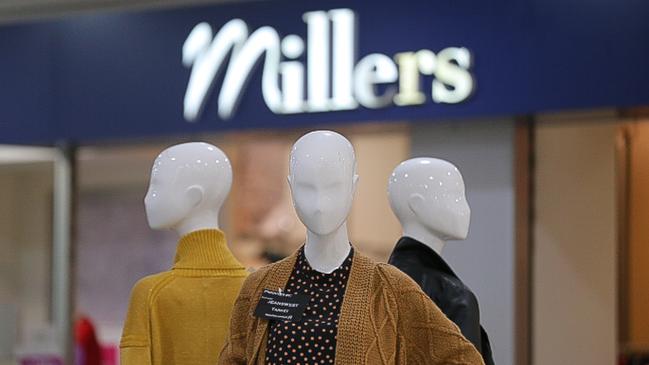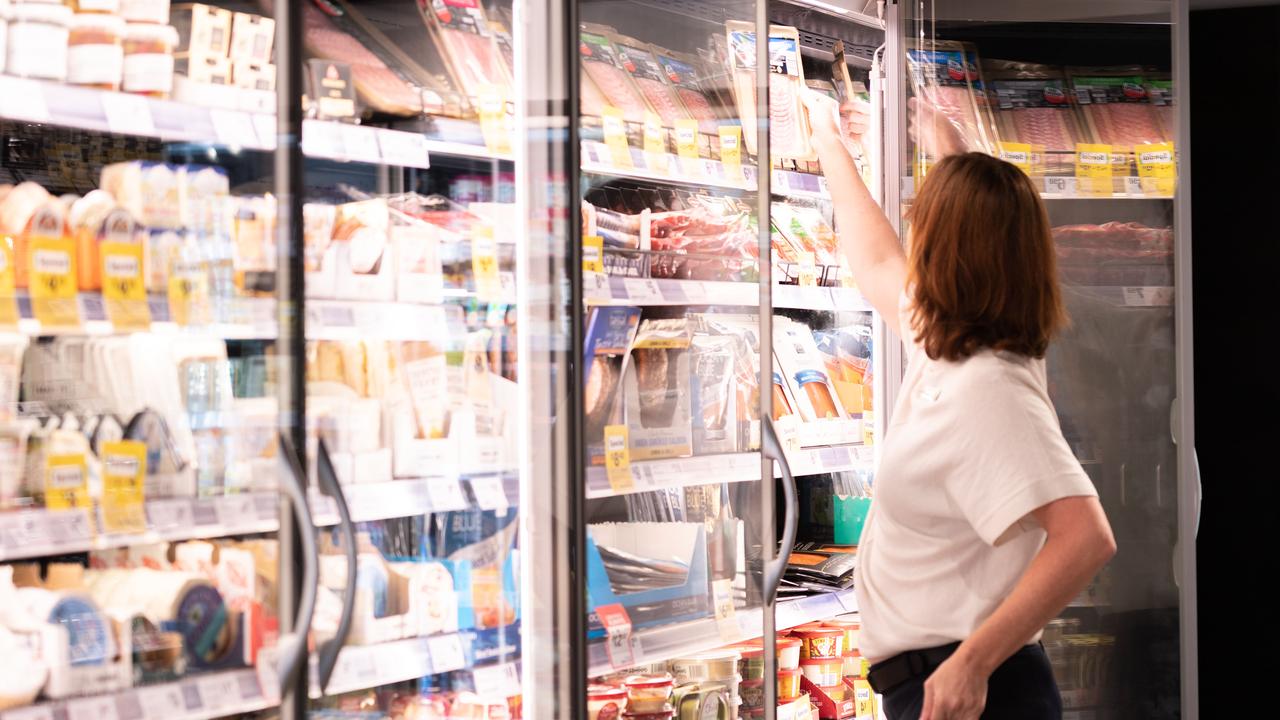Noni B owner Mosaic Brands to swing to loss as nervous older shoppers stay home amid Covid-19
Shares in Mosaic Brands, which owns fashion chains Noni B, Katies and Millers, plunged 55 per cent after warning that its core older customers remained nervous about going out to shop.

Shares in Mosaic Brands, which owns fashion chains Noni B, Katies and Millers, plunged 55 per cent after warning that its core older customers remained nervous about going out to shop in the midst of the Covid-19 pandemic, forcing it into the red.
Losses that spilt into the second half would erase profits for the entire year with Mosaic on track to post a full-year loss.
The retailer, which operates 1000 stores across a range of brands, is also struggling with labour shortages and being able to keep stores open as staff fall sick. As many as 40 of its stores are currently closed due to sick store managers, infected staff and isolations, and an inability to replace missing staff on its rosters.
Mosaic issued the profit warning on Wednesday, revealing that while its trading performance had improved since Mother’s Day and June had shown stronger results, the pace of the rebound from lockdowns and travel restrictions at the start of the new year was below expectations and would dent its earnings for fiscal 2022.
Mosaic Brands shares plummeted 55 per cent on Wednesday afternoon as investors digested news it would plunge into losses for 2022. The stock is down nearly 89 per cent since the pandemic began.
The shares closed down 25c, or 56 per cent, at 20c.
Fears among customers triggered by the spread of the Omicron variant of Covid-19 led many to shun shopping centres and forgo opportunities to refresh their wardrobes.
“The May trading month, which included the key Mother’s Day period, continued to see overall trading conditions improve gradually, however at a rate that was below expectations, as our core customers remained highly cautious of the ongoing risks associated with Omicron,” Mosaic said in a statement.

Mosaic chief executive Scott Evans later said he was seeing “some semblance of normality” come back into the market but it was too late to rescue the company’s June half performance.
“April was better, May was better than April and June is better than May. So each month it‘s stepping forward as people seem to get back to normality and I think June is definitely a big step forward,” Mr Evans said.
“So as a business we’re well set to move forward and Covid looks like it’s a thing of the past now, which is the best news of the day. But January and February were very challenging … March got a bit better.”
Mr Evans said for Mother’s Day many of its regular customers, typically an older demographic, were staying at home as they were concerned about catching Covid-19 and being forced into isolation.
It is believed that Mosaic’s older demographic of shoppers remained nervous about venturing to crowded shopping centres through the second half in the wake of the Omicron outbreak, with many entering a “self-imposed” lockdown that kept them at home, and away from Mosaic’s portfolio of retail outlets.
This self-imposed lockdown was in stark contrast to the behaviour of many shoppers this time last year when the swift rollout of the Covid-19 vaccines to this older cohort, especially the over 50s, gave them the confidence to go out and shop again which benefited Mosaic.
But that has flipped back and older shoppers were less confident and slower to return to the shops. Mosaic said given the continued disruptions to trade during the second half, it expected to report a loss, and that would also result in a full year loss for 2022.
This is despite the group delivering a profit in the first half of the year, notwithstanding the lockdowns, the company said. But it hoped that it would enter the coming financial year stronger, despite higher inflation and supply chain disruptions.
“While inflationary and other wider economic pressures are expected to continue into 2023, the recent strengthening the group is seeing in trade gives the board confidence that conditions ahead are more favourable and navigable than the previous two years of managing the impact of Covid and lockdowns,” Mosaic said.
“As a result, Mosaic expects to return to profitability in 2023. Management is focused on closing 2022 and entering 2023 in a strong and clean position to maximise the year ahead.”
Mr Evans said one of the biggest challenges remained labour shortages forcing it to shut down many of its stores as staff and managers get sick. “We have got on average about 40 stores closed every week this half because the store manager gets Covid-19 and then the team have to self isolate,” he said. “That’s one of the biggest challenges everyone has today. The scarcity of talent just makes it more difficult.”
Mr Evans said he was looking to 2023 as a “clean year” for the company with its online platform performing strongly, and costs under control.







To join the conversation, please log in. Don't have an account? Register
Join the conversation, you are commenting as Logout